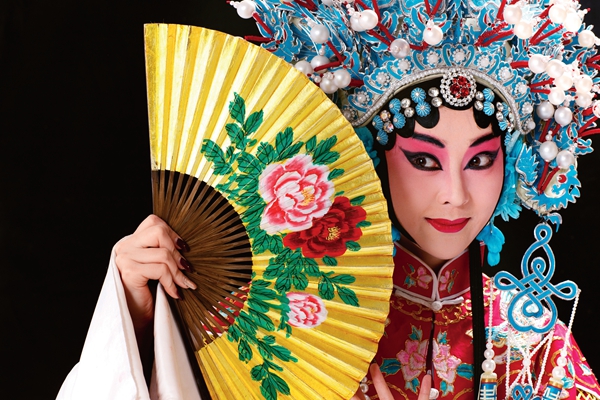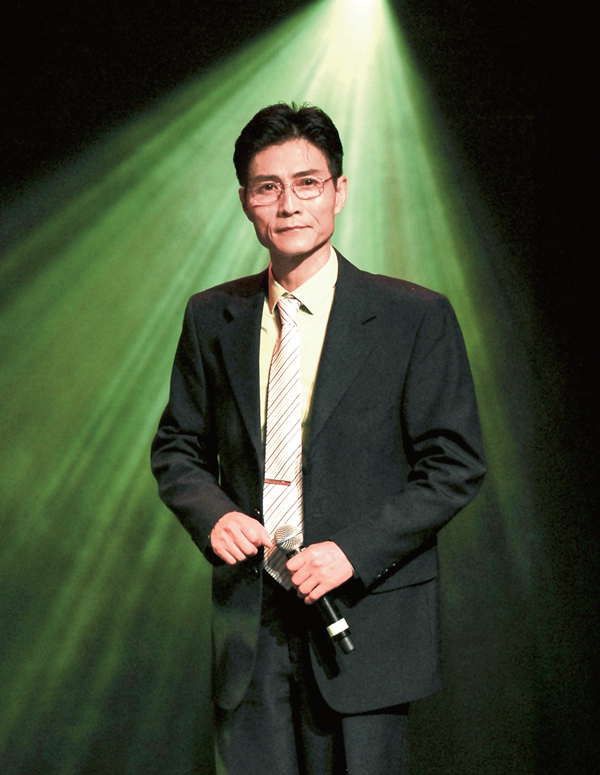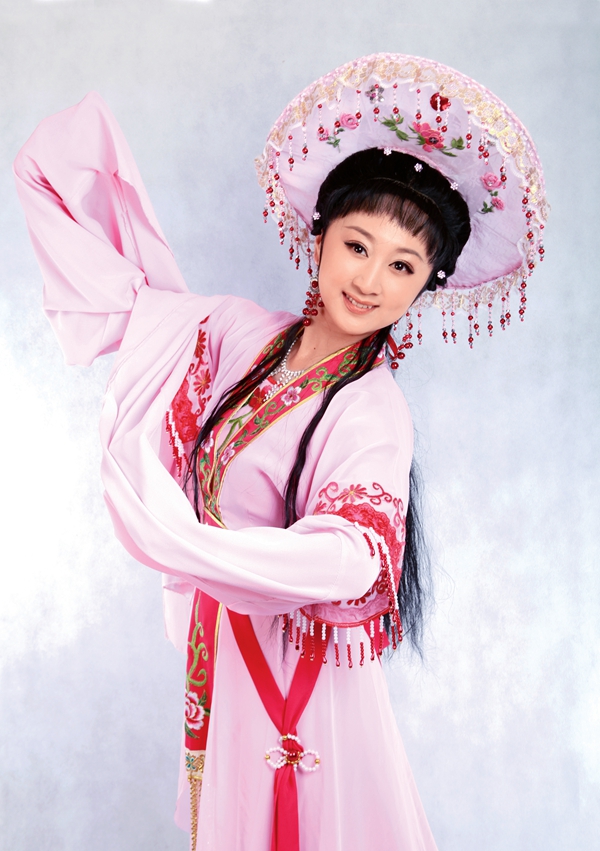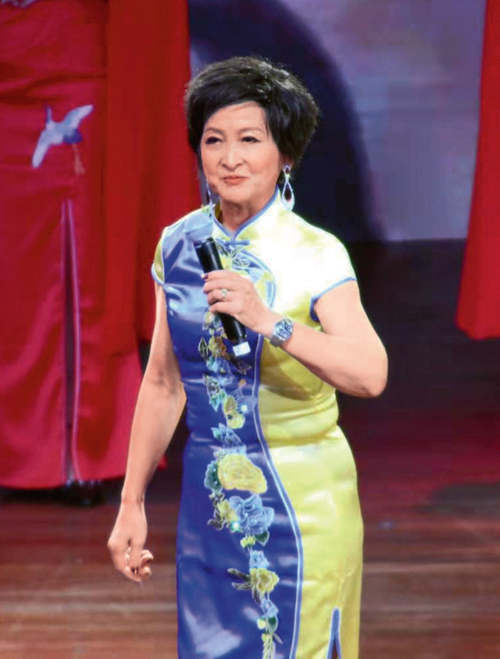Bringing Traditional Chinese Opera to Wider Audience

Traditional Chinese operas are treasures of fine Chinese culture. In other countries, there are countless overseas Chinese who love performing traditional Chinese operas. With their performances, they help ease the homesickness felt by many overseas Chinese, including themselves, and they perform a role in inheriting traditional Chinese culture.
Sense of Mission
"The song of tea is floating in the air, and in my heart. You are the wind blowing from the mountains, with the fragrance of earth…" In a video, a group of girls perform a Huangmei Opera. They are students of North America Xiaofang Huangmei Opera Art Troupe. The troupe was established by Chen Xiaofang, a Huangmei Opera artist, in 2015 in New Jersey, the United States.
 |
| Chen Xiaofang |
"Five years ago, I started a Huangmei Opera class for children only. It was because my adult students sometimes brought their children to the troupe when they attended classes or rehearsed plays, and the children gradually became interested in Huangmei Opera. This is a kind of inheritance. Some parents think by letting their children learn to sing Huangmei Opera, the children not only learn the Chinese language, but also get close to traditional Chinese culture," Chen says.
Chen began learning Huangmei Opera when she was a teenager. Even though she has lived in the US for more than two decades, she has never lost her passion for Huangmei Opera. It is her mission, and she believes it is her responsibility, to spread Chinese culture overseas, and especially to help people enjoy Huangmei Opera.
 |
| Yu Xiaomei |
Yu Xiaomei, deputy head of Houston Huaxing Art Troupe, in the US, shares Chen's sense of mission and responsibility. "I think I am a lucky woman," Yu says of her experience of learning Peking Opera.
She studied modern Peking Opera, and vocal music, in Shanghai at a young age. After she moved to the US, more than 30 years ago, she became interested in traditional Peking Opera. In 2015, she began studying under Wang Rongrong, a master of the Zhang school of Peking Opera. She was also taught by several other Peking Opera masters, including Yan Guixiang, Liu Mingzhu, Li Li and Zhao Xiujun.
"Every time I returned to China, I visited and sought advice from my master, Wang, and the other teachers, to improve my Peking Opera skills. I also sent videos of my performances to them online, and I asked them for advice and instruction. They are nice to me, and they always give me detailed instructions. I think I have the responsibility to learn and perform Peking Opera well, so more people will enjoy the national opera of China," Yu says.
Yu always agrees to perform Peking Opera whenever her American friends invite her to perform. "They love my performance. When I finish performing, they will come backstage and ask me, 'How did you do this makeup?' 'How did you put on this headdress?' … I am really glad that I can let them appreciate the beauty and charm of Peking Opera through my own efforts," Yu says.
 |
| Cheng Jie |
Deep Bond
Cheng Jie is one of the founders of Sydney Huaxing Peking Opera Troupe, in Australia. His father, Cheng Zhengtai, was a student of Yang Baosen, master of the Yang school of Peking Opera. Cheng Jie practiced the basic skills of Peking Opera at a young age, but he stopped practicing after a few years.
"My father passed away in 2000. The next year, I moved to Australia. When I was away from home, I realized Peking Opera was an indispensable part of my life. I met some Peking Opera fans in Australia. I felt at home when I heard them playing huqin (a family of traditional Chinese bowed string instruments) and singing Peking Opera. One of the fans was a former colleague of my dad," Cheng Jie recalls. He started practicing Peking Opera again in 2001.
"We now have more than 10 members in our troupe. We often perform Peking Opera and attend cultural activities, leading fulfilled and meaningful lives," he says.
 |
| Qin Zhu |
Qin Zhu, who moved to Australia in 2006, has been fond of Yue Opera since she was a child. "I came from Nanjing (capital of East China's Jiangsu Province), where Yue Opera is popular among the locals. My mother is a fan of Yue Opera, and I started to learn Yue Opera at 8. After I arrived in Australia, I joined Sydney Yue Opera Troupe. Before the COVID-19 pandemic, our troupe performed in communities twice a year, in April and October. We were also invited to perform on various occasions," Qin says.
"Many people were excited after they watched our performances. They would thank us for bringing Yue Opera overseas, and for giving them opportunities to enjoy Yue Opera. That made me feel warm, and touched," Qin says.
 |
| Wu Rongying |
Wu Rongying had worked with an art troupe, and a Yue Opera troupe, before she moved to Brazil in 1988. She studied and practiced hard, and she was good at performing Peking Opera and Yue Opera. "I have been living in Sao Paolo since 1995. Given my love for traditional Chinese operas, I joined Sao Paulo Huaxing Art Troupe. I am grateful for what I have learned in China. That's what makes me capable of performing Peking Opera and Yue Opera for audiences in Brazil," Wu says.
Lasting Passion
It is not easy to perform traditional Chinese operas overseas. "As we lack professional teachers overseas, we have to learn from videos when we rehearse operas. We often put on facial makeup ourselves, as we don't have professional dressers. When we fail to find proper costumes for our performances, we have to buy tailor-made outfits from China. People are willing to spend energy and money on their hobbies. As we are passionate about traditional Chinese operas, we will never give up," Qin says.
"There are three things you need to have as an overseas opera performer — passion, time and money. You need to buy costumes and all the other things you need for your performance. I have made many friends in Australia because of our common interest in Peking Opera. I can also give full play to my professional skills, in art design, when we make background boards for our performances," Cheng Jie says.
"It is not easy for us to perform traditional Chinese operas overseas, as we lack performers and financial support. It is a pity some members of my troupe had to quit, because of changes in their work or family. But I never thought of giving up," Chen says.

Various cultural-exchange activities, between China and other countries, also give them the confidence and courage to persist. "In 2017, our troupe cooperated with Tianjin Youth Peking Opera Troupe to stage Peking Opera performances in Tianjin. I performed with Peking Opera artists Tan Xiaozeng, Li Hongtu and Zhang Ke on stage. I was excited I had the opportunity to perform with these masters, and I learned a lot from them," Yu says.
"Overseas fans of traditional Chinese operas also communicate with each other frequently. We have held several online-exchange activities in the past several years. We will organize more activities this year," Yu adds.
"By performing traditional Chinese operas, we have become ambassadors of cultural exchanges between China and other countries. One of my students once performed Huangmei Opera for her classmates. When she asked her classmates what kinds of traditional Chinese operas they knew, they said they only knew Peking Opera, and had never heard of Huangmei Opera. Her performance opened a window for her classmates to understand Huangmei Opera," Chen says.
Chen's troupe organized an online lecture on June 25, 2022, to introduce Huangmei Opera to a foundation under the New Jersey Historical and Cultural Commission. As a cultural project supported by the commission, the troupe will stage a Huangmei Opera show in May this year. "I hope, through our efforts, more people will understand the charm of traditional Chinese operas," Chen says.
Photos Supplied by Interviewees and VCG
(Source: People's Daily Overseas Edition/Women of China English Monthly April 2023 issue)
Please understand that womenofchina.cn,a non-profit, information-communication website, cannot reach every writer before using articles and images. For copyright issues, please contact us by emailing: website@womenofchina.cn. The articles published and opinions expressed on this website represent the opinions of writers and are not necessarily shared by womenofchina.cn.








.jpg)

 WeChat
WeChat Weibo
Weibo 京公网安备 11010102004314号
京公网安备 11010102004314号